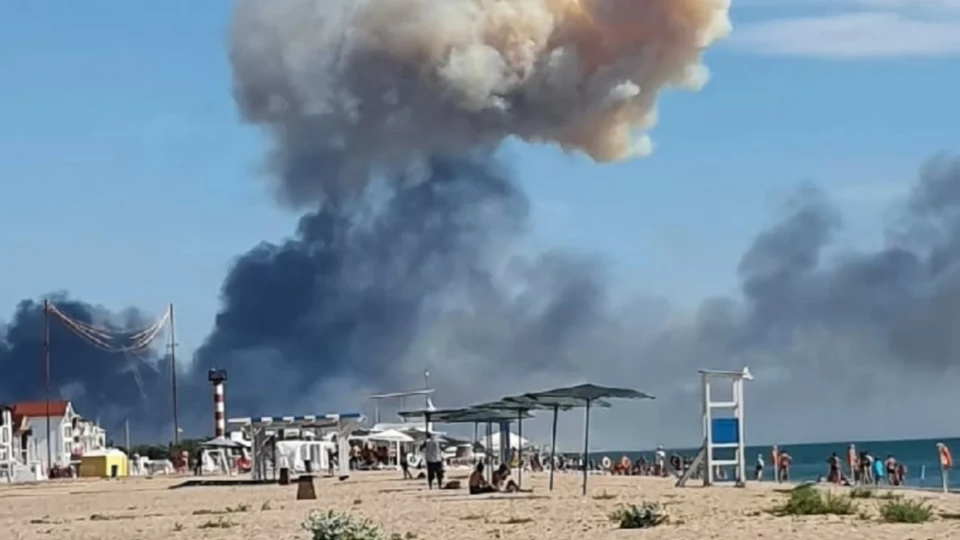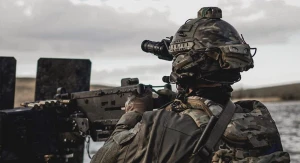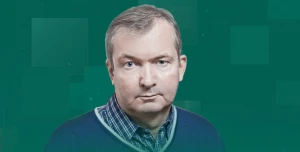
Russia will be hostile to Ukraine even after war - professor at National University of Kyiv-Mohyla Academy
What is the state of the resort and tourism sector in Crimea, what needs to be prepared before liberation, and what to do with Russians on the peninsula? Professor of the Kyiv-Mohyla Academy Yevhen Khlobystov answered these questions in an interview with Espreso
Contents
1.How is the tourist season in Crimea?
2.What to do with Russians in Crimea after its liberation?
3.Will the "recipe" used by the Baltic countries with grey passports work?
4.How will the administrative reform in Crimea be implemented?
5.Can we see a change in the toponymy of Crimea in the near future?
6.How will Ukraine solve the issue of water supply to Crimea after de-occupation?
The conversation with Yevhen Khlobystov, Professor, Dean of the Faculty of Natural Sciences of the National University of Kyiv-Mohyla Academy, was broadcast on Espreso TV's programme "Together Beraber"
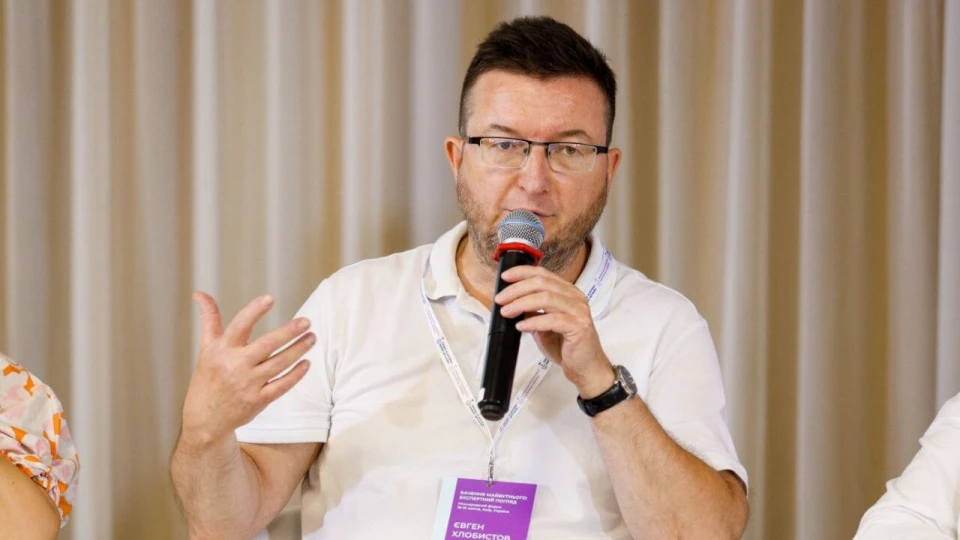
How is the tourist season in Crimea?
On June 23, the Armed Forces of Ukraine attacked Russian military targets in Crimea, which resulted in Russian air defense missiles being shot down over the beach where people were staying. Videos from the scene quickly went viral. After that, the occupation administrations and tourist operators reported that many people cancelled their trips to Crimea and stopped booking sanatoriums and camps.
Today, Crimea is a tourist destination mainly for Russians. Russians holidaying in Crimea are in their own reality, where the war does not seem to exist, so they go there believing it is absolutely safe. Although this situation has significantly affected the tourist season in Crimea this year, it was not very active before. This is to some extent artificial tourism, as Russia heavily subsidises tourism services through free and discounted vouchers.
After Crimea returns to Ukraine, we will face, first and foremost, the issue of safety of recreation. Secondly, the quality of services. Ukraine will be exhausted by the war and will not be able to immediately invest in high-quality tourist facilities and services. Therefore, Crimea is likely to remain a tourist destination mainly for Crimeans for many years to come.
Currently, representatives of the FSB and Russian administrations under sanctions are holidaying in Crimea. For example, Razvozhayev wrote that the 9-year-old daughter of the deputy mayor of Magadan, who brought his family to the occupied Crimea for a holiday, was killed. So those who cannot travel to other countries are having a holiday there?
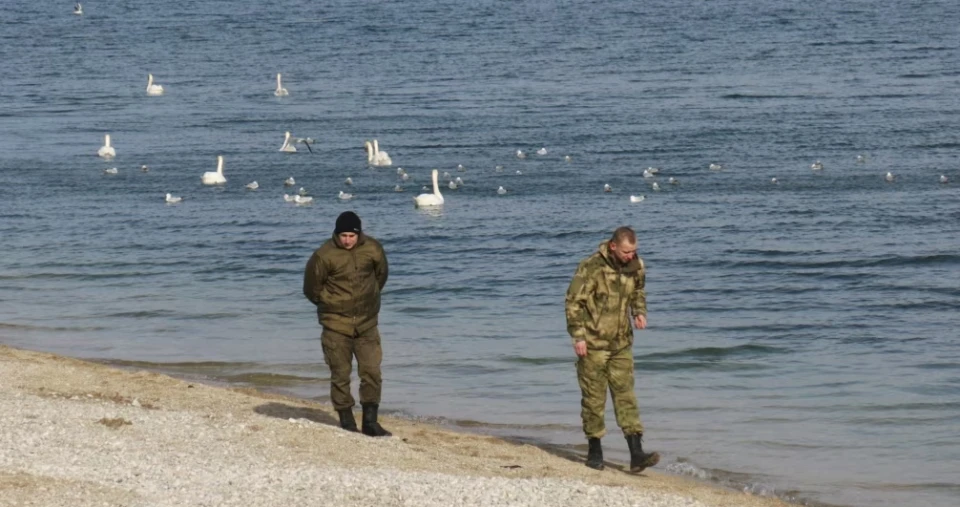
In my opinion, it's not just the FSB who are on holiday there. A huge number of Russians are in their own information bubble, where there is no war. For them, Crimea is associated with Soviet nostalgia: a resort, a holiday, "Crimea is ours". They are not even aware of the real situation created by the information curtain in Russia. People from the north of Russia, who are not interested in what is happening in the European part of the country, believe that everything is fine, there are no hostilities, no missiles flying and they do not expect such attacks. They even buy real estate in Crimea with the belief that it will be their home forever and will never change.
Recently, the occupation authorities of Crimea have intensified the process of nationalizing the homes of Ukrainians, including celebrities. The processes are very similar to those of 1944. For example, the house of Ukrainian singer Jamala, as well as other properties, has recently been nationalized. These houses are sold at auctions, and they are usually bought by Russian colonizers. The occupiers claim that the proceeds from the sale are used to support military operations against Ukraine. What are we going to do about it?
Firstly, the economic benefit from such actions is minimal compared to the cost of the war. These actions are mainly informational in nature. Russia is trying to show its citizens that it has dealt with pro-Ukrainian elements and that their property is being used for the needs of a "special military operation".
Unfortunately, we have no legal influence on these actions now, because Russia does not recognise many international courts and does not comply with numerous international conventions. The world is generally built on treaties that are not enforceable, and most civilised signatories to such treaties do not even imagine that it is possible to so brazenly disobey them without explaining their actions. However, in general, the situation with pseudo-nationalisation in Crimea does not have a significant impact on the real situation and attitudes towards Crimea.
After Hitler, did no one imagine that a new Hitler could emerge who could simply level all international norms and so on?
Absolutely, and it still surprises our partners in the European Union and NATO countries. They keep trying to resolve the problem with Russia through some international body or establish relations through legal authorities, but this is obviously not happening
The European Court of Human Rights has recently recognised the obvious. 10 years after Ukraine filed a lawsuit, the court confirmed that Russia had violated 11 out of 18 articles of the European Convention on Human Rights. But Russia will not comply with this decision. Is there any point in such decisions, and what does this mean for us?
For us, this means that we continue to move within the system of international law as part of the global community that fulfils its international obligations. We support the general movement towards a legal solution to our problems and relations with Russia. However, again, there is no coercive mechanism that will force Russia to comply with any international treaties. The Second World War is a good example: Hitler's Germany did not honour any treaties. As a result, this led to a new chapter in European history.
The situation with Russia is more complicated, because I don't see even the most daring ideas of a victory parade in Moscow or a change of political regime in Russia. This means that Russia will continue to be in a state of hostility towards Ukraine. At a recent forum of the expert network, I emphasised the need to create a border frontier economy. Today's Russia leaves us no choice but to be prepared for further unfriendly actions.
What to do with Russians in Crimea after its de-occupation?
The latest news that was spread by the media about the situation around Chersonesus.Some media interpreted that Chersonesus had been destroyed altogether. It turned out that the construction near this UNESCO heritage caused damage, but did not completely destroy it.
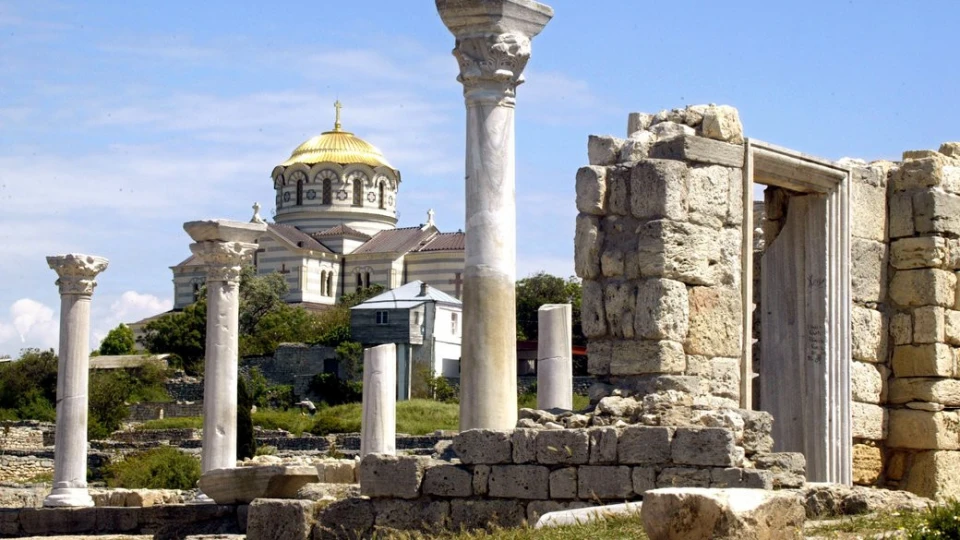
When we liberate Crimea, will that new building still be there? What are we going to do with these illegal buildings that the occupiers have been actively building for 10 years, since the Kerch Bridge will obviously be destroyed? What will happen to the people who live there, what should we do about the Russians who came to Crimea and all the infrastructural changes they brought?
According to various estimates, there are between 500,000 and over 1 million Russians in Crimea. These are people who had no right to cross the borders of Ukraine and settle in Crimea. Of course, Ukraine will not destroy residential buildings. We can accommodate people who have gone through the war and are defending our country. This property should be confiscated and distributed through government programmes.
As for the people who came to Crimea, the situation is not clear. Some of them have to leave the territory of Ukraine, but there are those who came as teenagers, became adults and started their own families. They may have children, some of whom are Ukrainian citizens and some of whom are not. This issue requires a certain policy: how to deal with these people, how to deport them or encourage them to return to Russia. If we leave a million Russians in Crimea, we will never see a Ukrainian or Crimean Tatar Crimea.
Will the "recipe" used by the Baltic countries with grey passports work?
The experience of the Baltic states with grey passports cannot be mechanically transferred to other states. Even in a small country like Latvia, almost half of the population was Russian-speaking. Some of these people, after integration into the European Union, became loyal citizens, learned the language, obtained citizenship and are still working today. However, a large number of people remain people with limited rights for various reasons, including Soviet principledness. This was a requirement of the European Union to avoid forced deportation.
This is a challenge and a problem for small countries, because such people cannot participate in elections or hold public office, even though they live there.Although some of these people do not have national passports, they still form a certain political and emotional environment.
If they do not adapt to the state policy, they automatically become the so-called "fifth column", i.e. a certain danger for the future of the state.
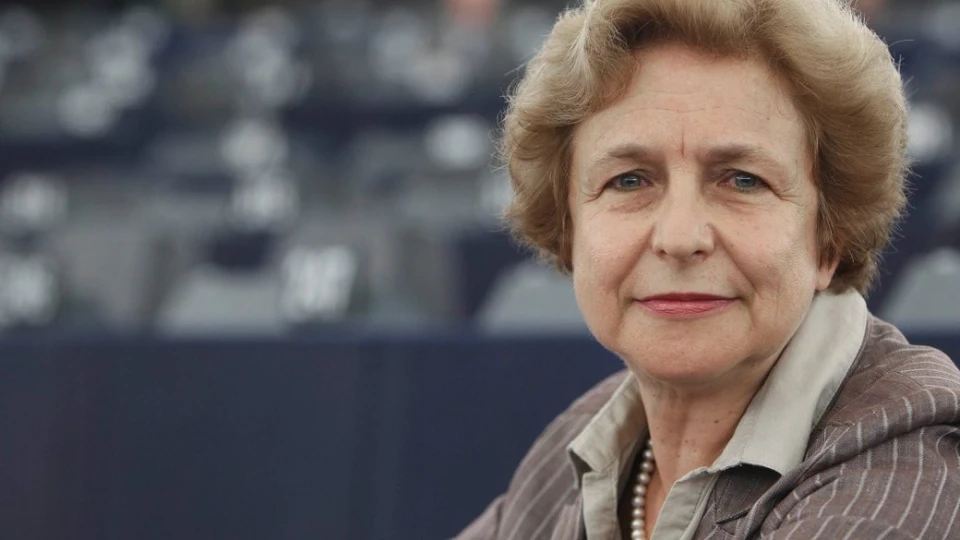
For example, MEP from Latvia Tatjana Ždanoka was an FSB agent, and she was elected by Russian speakers. She represented their interests in the European Parliament. Ukraine also wants to become part of the European Union, and we will also have MEPs. People who are not loyal to Ukraine, but live on its territory, can delegate someone to the European Parliament and influence European policy. This is actually a Trojan horse for Ukraine.
Do you have any ideas for solving this problem?
At the level of the Crimean Platform's expert network, we discussed that after de-occupation, Crimea should be deprived of the right to elect its representatives to elected authorities for 5-10 years. First, there will be a military administration, then a civil-military administration, and only then will we move on to traditional formulas. First, cultural and educational programmes should bring the Ukrainian context into the information environment.
How will the administrative reform in Crimea be implemented?
Despite the fact that military-appointed administrations will be in charge, it is necessary to develop a decentralised system of self-government, as in the free territories of Ukraine. Sevastopol, or Akyar, should become a part of the Crimean peninsula without a special status. This city should be the same as all other cities in Ukraine. Possible scenarios include integration into the Bakhchisaray district or the creation of a united territorial community.
This issue needs to be discussed by experts and government officials. We need to see a new governmental structure in Crimea. The formation of united territorial communities instead of the existing rayons will be the basis of a new administrative scheme. It will be fully operational only after elections can be held in Crimea.
Are we likely to see a change in the toponymy of Crimea in the near future?
You mentioned Akyar, the so-called Sevastopol. Are there any developments in this regard?
Yes, there are developments. In particular, the Crimean Tatar Resource Centre has done a lot to make these developments public. Anyone can get acquainted with the new and restored old names. The return of the place names of Crimea requires a lot of work with the deputy corps to ensure that these renamings take place at the level of our parliament.
This is not an easy process, especially during wartime when there are restrictions.
In addition, we still have two regions in mainland Ukraine that have long been in need of renaming - Dnipro and Kirovohrad. We have to be ready even before the de-occupation of Crimea.When we enter Crimea, we must have all the developments and draft laws ready.The only question is to adopt and implement them in Crimea.How will we solve the issue of water supply to Crimea after de-occupation?
Water supply to Crimea will be a problem because of the Russians' undermining of the Kakhovka hydroelectric power station.
I am a big critic of the restoration of the Kakhovka reservoir, as a unique ecosystem has been formed there that needs to be developed.The problems of water supply in that part of Ukraine need to be solved by other engineering solutions, and I think we will find th em.As for the canal to Crimea, this is a very controversial issue.It is possible to build closed canals, because more than 50% of water evaporates from open canals and this actually changes the environment.In addition, the North Crimean Canal needed serious repairs and upgrades even before the annexation, and the current situation with water in Crimea is even more complicated.As of 2013, when Ukrainian objective statistics were still available, the level of depreciation of water supply and sewage assets reached 80% in certain administrative units. Not a single major water communication facility has been renovated in Crimea.
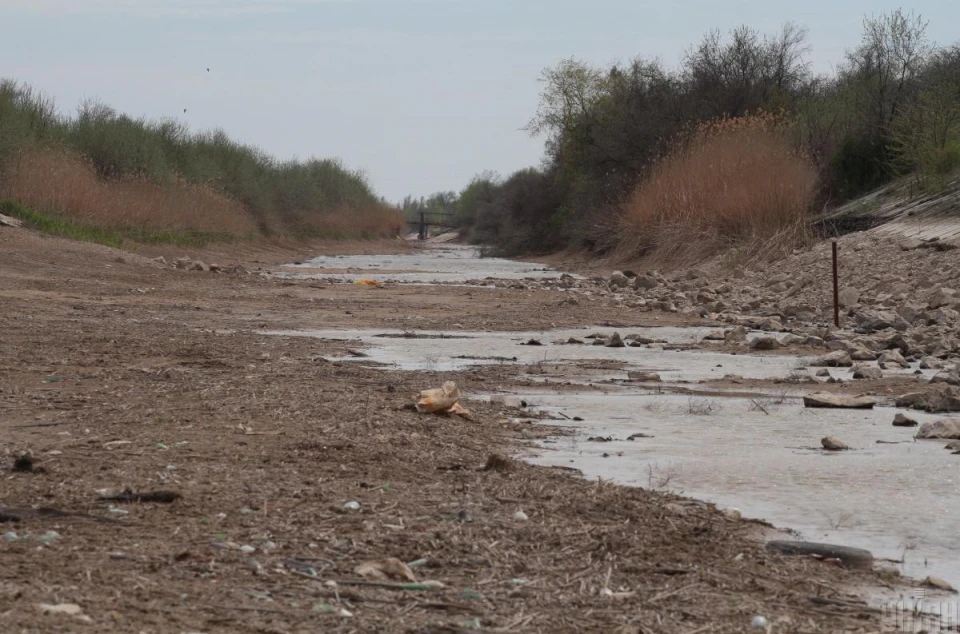
The second problem is that the Russian occupation authorities use groundwater for municipal water supply, which leads to dehydration of aquifers and deterioration of water quality.When we return Crimea, we will see a serious water crisis.
As for the energy sector, today we do not have enough power ourselves, and the deficit is very glaring. If we annex Crimea to Ukraine tomorrow, we will not be able to physically supply Crimea with energy. Russia will not supply anything there.We need to prepare for challenges in electricity, water and gas supply.
We discussed this a lot at our expert network meetings.We need to engage our partners in the Black Sea basin and create a local generation system to avoid a catastrophe.Imagine the situation: the last Russian soldier leaves Crimea, the Russians turn off all the switches, and Crimea remains in a state of disaster. We must be prepared for this moment.
According to experts, in particular Olga Kosharna, today the Zaporizhzhia nuclear power plant is in such a state that it is technically impossible to put it into operation.The capacity of Zaporizhzhia NPP is not enough.
We cannot rely on its capacity even after regaining control over the facility.
- News









